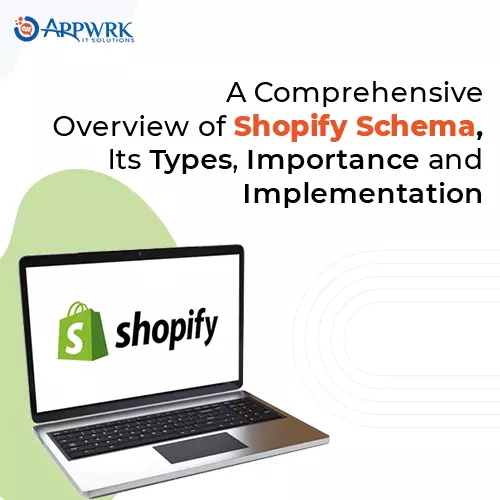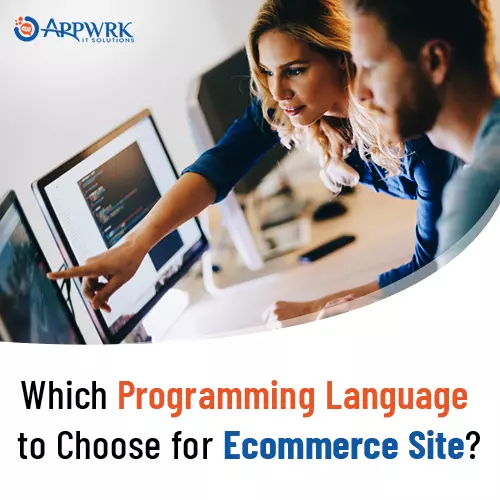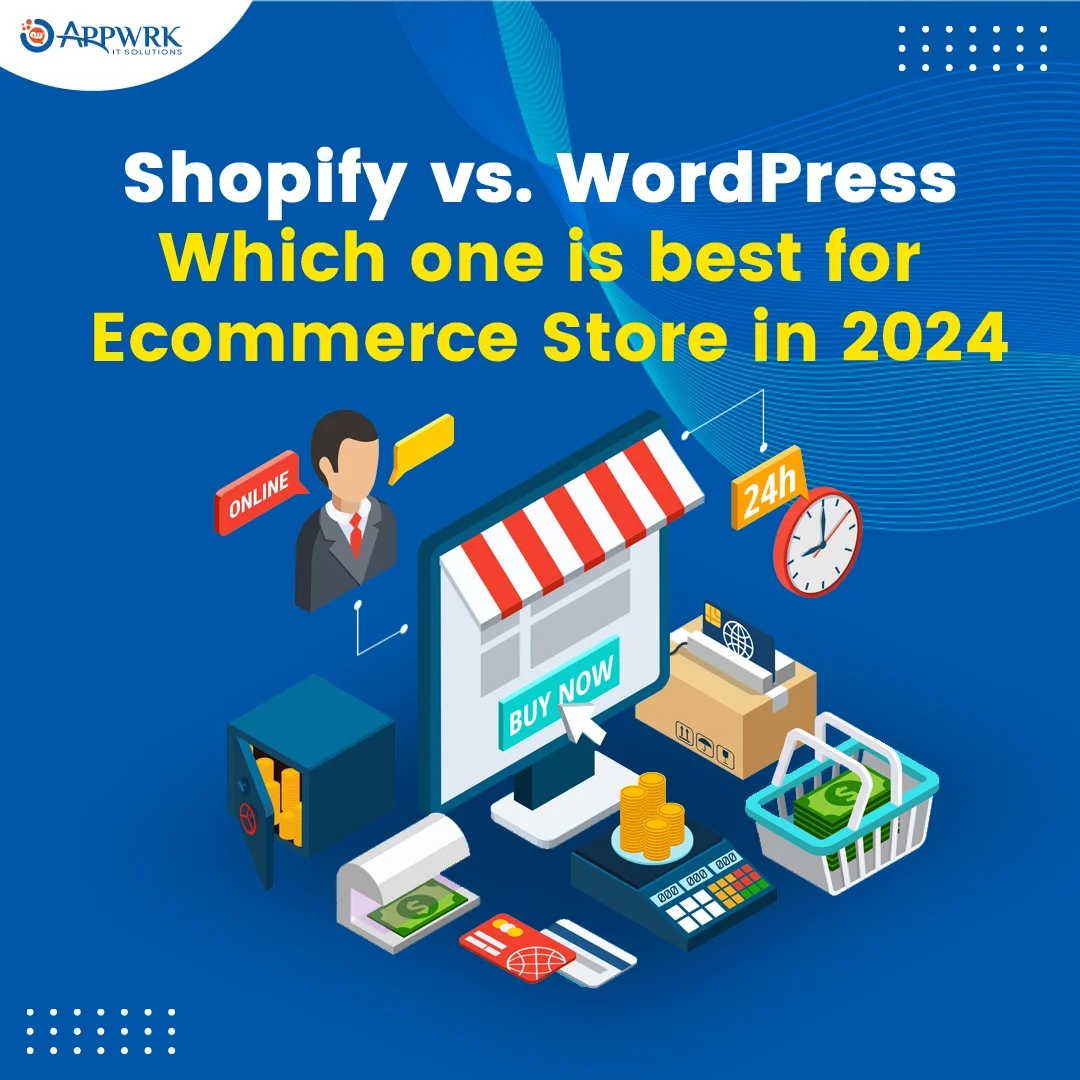Top 12 Shopify Dropshipping Apps for 2025
If you’re diving into the world of e-commerce, you’ve probably heard the buzz about Shopify dropshipping apps. These tools are revolutionizing the way businesses manage their online stores. But what exactly are Shopify Dropshipping Apps? Well, let’s break it down in simple terms. Whether you’re just starting out or looking to streamline your process, knowing which app is best for dropshipping can make all the difference.
Imagine if you’ve got a killer product, a sleek Shopify store, and eager customers waiting to hit that “Buy Now” button. But wait… how do you manage all those orders, track inventory, and handle shipping without losing your sanity? That’s where Shopify dropshipping apps swoop in to save the day! These nifty little tools automate many tasks, making your life as a business owner way easier. So, get ready to discover the best dropshipping apps for Shopify, and let’s turn your e-commerce dreams into reality!
Table of contents
What are Shopify Dropshipping Apps?
Alright, let’s dig a bit deeper into the world of Shopify. A Shopify dropshipping app is like your personal assistant for running your online store. It’s the digital wizard that helps you manage everything from sourcing products to fulfilling orders without breaking a sweat. Additionally, shopify dropshipping software provides a comprehensive solution, automating many tedious tasks so you can focus on growing your business.
These apps play multiple roles in automating various aspects of your dropshipping business on Shopify. Here’s how they work their magic:
- Inventory Management: Say goodbye to spreadsheet nightmares! A dropship app keeps track of your inventory levels in real time, ensuring you never oversell or run out of stock unexpectedly.
- Order Processing: When a customer places an order, the app automatically processes it and sends the details to your supplier for fulfillment. No more manual order entry – hallelujah!
- Shipping Logistics: From generating shipping labels to tracking packages, these apps handle all the nitty-gritty details of getting your products from point A to point B. Plus, they often integrate with multiple shipping carriers, giving you options to choose the best rates and delivery times.
- Product Sourcing: Need new products to add to your store? No problem! Many dropshipping apps come with built-in product sourcing tools that help you find and import products from reliable suppliers with just a few clicks.
- Automated Updates: Whether it’s price changes, stock availability, or order status updates, a dropship app will keep you in the loop with automated notifications and alerts.
But here’s the best part – Shopify dropshipping apps aren’t just about making your life easier. They’re also super smart, using advanced algorithms and data analytics to optimize your store’s performance. Think of them as your secret weapon for staying ahead of the competition and maximizing your profits. So, whether you’re a newbie entrepreneur or a seasoned e-commerce pro, these apps are a game-changer.
How do Shopify dropshipping apps work?
Now that we’ve got the basics down, let’s dive into how Shopify dropshipping apps do their work. Think of an app as your behind-the-scenes hero, working tirelessly to keep your online store running smoothly. Here’s the lowdown on how they work their magic:
1. Streamlined Inventory Management: Dropshipping apps keep a watchful eye on your stock levels, updating you in real-time so you always know what’s in stock and what’s running low.
2. Effortless Order Fulfillment: When a customer hits that “buy now” button, the drop shipping app springs into action. It grabs all the necessary details, like product info and shipping address, and shoots them off to your supplier.
3. Automated Tasks Galore: From generating shipping labels to sending out tracking updates, these apps handle all the grunt work for you. Many of the best tools for Shopify dropshipping like CJDropshipping, Zendrop, Printify, and Spocket, will even optimize shipping and fulfillment processes.
4. Supplier Communication: Need to check in with your suppliers? No problem. Dropshipping apps keep the lines of communication open, so you can shoot them a message or get updates on your orders with ease.
These apps are the unsung heroes of your dropshipping business. They work behind the scenes, making sure everything runs smoothly so you can focus on growing your empire. So go ahead, sit back, and let the magic happen!
Top 12 Dropshipping Apps for Shopify
Alright, buckle up, because we’re about to dive into the top 12 Shopify dropshipping apps that’ll take your e-commerce game to the next level. Without further ado, let’s meet our star players:
1. CJDropshipping
CJDropshipping is an e-commerce platform for dropshipping, where sellers don’t stock products but purchase them from third-party suppliers when customers order. It helps manage product sourcing, order processing, inventory, and shipping logistics, connecting sellers with suppliers and offering tools for business optimization.
Pricing Plans:
- Free: $0/month
- Plus: $15.99/month
- Prime: $19.99/month
- Advanced: $59.99/month
Ratings: 4.9/5
Pros:
- Diverse Product Range: CJDropshipping offers a wide variety of products through multiple suppliers.
- Automation: The platform automates order processing, inventory management, and shipping logistics, saving time and effort.
- Low Startup Costs: Minimal upfront investment is required, making it accessible to individuals and businesses with limited capital.
Cons:
- Shipping Times: International shipping can lead to longer delivery times, requiring clear communication with customers.
- Pricing Competition: Intense competition in certain niches requires sellers to monitor pricing trends closely.
2. Zendrop
Zendrop is a dropshipping platform that simplifies the retail process for online stores. It enables retailers to easily find products, import them into their stores, and automate order processing. With Zendrop, retailers can streamline their operations and focus on growing their businesses without worrying about inventory management or shipping logistics.
Pricing Plans:
- Free: $0/month
- Pro: $49/month
- Plus: $79/month
Ratings: 4.8/5
Pros:
- Streamlined Dropshipping: Zendrop simplifies the dropshipping process, making it easier for online retailers to find products, import them into their stores, and fulfill orders efficiently.
- Product Sourcing: The platform offers a wide range of products from various suppliers, allowing retailers to access a diverse selection to meet customer demands.
- Automation: Zendrop automates many aspects of the dropshipping process, such as order processing and shipment tracking, saving retailers time and effort.
Cons:
- Dependency on Platform: Retailers relying on Zendrop for their dropshipping operations may become dependent on the platform, with limited control over certain aspects of their business operations.
3. AutoDS
AutoDS is a comprehensive automation platform designed for managing and scaling e-commerce businesses, particularly for sellers on platforms like eBay, Amazon, and Walmart. The platform offers a range of features aimed at streamlining various aspects of the selling process, including product research, listing optimization, order fulfillment, inventory management, repricing, and customer service.
Pricing Plans:
- Products Importer: $26.90 per month
- Starter: $39.90 per month
- Warrior Dropship: $66.90 per month
Ratings: 4.8/5
Pros:
- Automation Efficiency: AutoDS streamlines e-commerce operations, saving time and resources by automating tasks like listing and order processing. This is one of the best tools for shopify dropshipping to increase your efficiency.
- Comprehensive Feature Set: With tools for product sourcing, listing optimization, repricing, and analytics, AutoDS provides all-in-one support for managing online businesses effectively.
- Market Insights and Analytics: AutoDS offers valuable data-driven insights to help sellers make informed decisions and identify growth opportunities in the competitive e-commerce landscape.
Cons:
- Learning Curve: Due to its complexity, new users may face a steep learning curve in mastering AutoDS’s extensive feature set, potentially delaying the realization of its benefits.
- Cost: While offering various pricing plans, AutoDS may be expensive for smaller businesses, especially if advanced features are only available in higher-tier plans, leading to increased costs.
4. Printify
Printify is an online platform that simplifies the process of creating and selling custom-designed products. It connects businesses with a network of printing and manufacturing partners worldwide, allowing users to choose from a wide range of customizable products and effortlessly bring their designs to life. With seamless integration into popular e-commerce platforms, Printify streamlines the entire process from design to fulfillment, empowering businesses to focus on growing their brand without the hassle of inventory management or production logistics.
Pricing Plans:
- Free: $0/month
- Premium: $29 per month
- Enterprise: Custom pricing
Ratings: 4.7/5
Pros:
- Diverse Products: Printify offers a wide range of customizable products, catering to various customer preferences.
- Global Network: It connects users to printing partners worldwide, facilitating efficient order fulfillment and global shipping.
- Integration: Seamlessly integrates with popular e-commerce platforms, streamlining storefront management and order processing.
Cons:
- Quality Control: Maintaining consistent product quality can be challenging due to reliance on third-party partners.
- Limited Control: Users have little control over the production process, potentially leading to longer lead times and production issues.
5. DSers
DSers is a dropshipping automation tool that aims to simplify and streamline the process of managing a dropshipping business. It integrates with popular e-commerce platforms such as Shopify, WooCommerce, and Wix, allowing users to easily import products from AliExpress and other supplier platforms.
Pricing Plans:
- Basic: Free
- Advanced: $19.90/month
- Pro: $49.90/month
- Enterprise: $499/month
Ratings: 5/5
Pros:
- Automation: DSers automates dropshipping tasks like order fulfillment and tracking, saving time and effort.
- Integration: It seamlessly integrates with major e-commerce platforms like Shopify, WooCommerce, and Wix, enhancing accessibility and convenience.
- Bulk Processing: DSers enable simultaneous processing of multiple orders, boosting efficiency and accuracy.
Cons:
- Limited Suppliers: DSers primarily integrates with AliExpress, potentially limiting supplier options.
- Learning Curve: Users may face a learning curve, especially beginners when navigating its features and settings.
6. Spocket
Spocket is an online platform that facilitates dropshipping, allowing entrepreneurs to easily find and source products from suppliers around the world. The platform connects merchants with suppliers, predominantly from the United States and Europe, offering a wide range of products across various categories such as fashion, beauty, electronics, and home goods.
Pricing Plans:
- Free: $0/month
- Starter: $39.99/month
- Pro: $59.99/month
- Empire: $99.99/month
- Unicorn: $299/month
Ratings: 4.7/5
Pros:
- Wide Range of Products: Spocket offers diverse products from global suppliers, ensuring merchants have a variety of options to meet customer demand.
- Quality Assurance: Suppliers on Spocket are vetted for reliability and product quality, reducing the risk of receiving subpar items or facing shipping issues.
- Easy Integration and Automation: Spocket seamlessly integrates with major e-commerce platforms and automates order processing, saving time and streamlining operations.
Cons:
- Pricing: While offering quality products, Spocket’s prices may be higher compared to other platforms, potentially impacting merchants’ profit margins.
- Limited Supplier Options: The majority of Spocket’s suppliers are concentrated in the US and Europe, limiting product choices for merchants targeting other regions or seeking niche products.
7. Printful
Printful is an on-demand printing and drop shipping app that allows businesses to create and sell custom-designed products online. Users can easily integrate Printful with their e-commerce platforms like Shopify, WooCommerce, Etsy, and more.
Pricing Plans:
- Free: $0/month
- Printful Growth: $24.99/month
Ratings: 4.8/5
Pros:
- Easy Integration: Printful seamlessly integrates with e-commerce platforms, simplifying setup and management for users.
- On-Demand Printing: Products are only manufactured when ordered, reducing inventory costs and allowing for greater customization.
- Wide Range of Products: Printful offers diverse customization options across apparel, accessories, and home decor, catering to varied customer preferences.
Cons:
- Pricing: While competitive, Printful’s pricing may be higher compared to bulk printing, potentially impacting profit margins.
- Shipping Times: On-demand fulfillment may lead to varied shipping times, which could result in customer dissatisfaction and affect the overall shopping experience.
8. Syncee
Syncee is a platform designed to streamline and simplify the process of managing product sourcing and inventory for e-commerce businesses. It offers various tools and features to help merchants find and import products from suppliers worldwide, manage their inventory, and sync product data across multiple sales channels.
Pricing Plans:
- Starter Plan: Free
- Basic Plan: $29/month
- Pro Plan: $49/month
- Business Plan: $99/mont
Ratings: 4.7/5
Pros:
- Simplified Product Sourcing: Syncee streamlines finding and importing products from curated suppliers, saving time and effort for e-commerce businesses.
- Automated Inventory Management: Real-time tracking and updates help maintain accurate stock levels, reducing the risk of overselling or stockouts.
- Multi-channel Integration: Seamless syncing across e-commerce platforms enhances visibility and expands sales opportunities for businesses.
Cons:
- Subscription Cost: While offering various plans, the subscription cost may pose a financial challenge for some businesses, especially startups.
- Learning Curve: The platform’s complexity may require additional time and resources to fully grasp, potentially hindering quick adoption for some users.
9. Modalyst
Modalyst is an online platform that connects e-commerce retailers with suppliers and wholesalers, primarily in the fashion industry. It enables retailers to source products from a curated selection of suppliers, access dropshipping services, and manage inventory seamlessly.
Pricing Plans:
- Hobby: $0/month
- Start Up: $35/month
- Pro: $90/month
Ratings: 4.5/5
Pros:
- Wide Supplier Network: Modalyst offers access to a diverse range of suppliers, enabling retailers to find trending and unique products easily.
- Dropshipping Integration: Seamless integration with dropshipping services simplifies order fulfillment, reducing overhead costs and streamlining operations.
- Inventory Management Tools: Robust features help retailers track stock levels, update product information, and sync inventory across sales channels for better control.
Cons:
- Membership Fees: Subscription-based model requires retailers to pay membership fees, which may deter some small businesses or startups.
- Supplier Reliability: Variability in supplier reliability can lead to issues such as product quality or shipping delays, impacting the overall customer experience.
10. Dripshipper
Dripshipper is an e-commerce platform specializing in dropshipping coffee products. It enables entrepreneurs to start their coffee businesses without inventory management or upfront investment. Through Dripshipper, users can set up online stores, select coffee products, and market them to customers. When a sale occurs, Dripshipper handles fulfillment and shipping directly to the customer, allowing store owners to earn profits with minimal risk.
Pricing Plans:
- Starter: $30/month
- Professional: $99/month
- Elite: $197/month
Ratings: 4.4/5
Pros:
Low Initial Investment: Dripshipper requires minimal upfront capital as there’s no need to purchase inventory beforehand.
Flexibility and Convenience: Users can manage their coffee businesses remotely and scale operations easily.
Reduced Risk: Dropshipping minimizes financial risk by only purchasing products once they’re sold.
Cons:
Limited Control Over Inventory: Users have little control over inventory management and quality control.
Lower Profit Margins: While costs are low, profit margins may be reduced, necessitating higher sales volumes for significant profits.
11. UpPromote
UpPromote is a referral marketing platform that empowers businesses to expand their customer base through word-of-mouth marketing. With easy-to-use tools, businesses can create and manage customized referral programs, track referral activities, and reward customers for bringing in new clients. By harnessing the power of customer referrals, UpPromote helps businesses drive sales and boost brand recognition effectively.
Pricing Plans:
- Free: $0/month
- Growth: $29.99/month
- Professional: $89.99/month
- Enterprise: $199.99/month
Ratings: 4.9/5
Pros:
- User-Friendly Interface: UpPromote’s intuitive interface simplifies referral program setup and management, requiring minimal technical expertise.
- Customization Options: Businesses can personalize referral programs to align with their brand identity and marketing goals, fostering a more cohesive customer experience.
- Comprehensive Tracking and Analytics: UpPromote provides in-depth tracking and analytics tools, enabling businesses to monitor campaign performance in real-time and optimize strategies for better results.
Cons:
- Limited Integration Options: While UpPromote integrates with popular e-commerce platforms, its compatibility may be restricted, limiting seamless integration with certain business systems.
12. PageFly
PageFly is a Shopify app that allows users to build customized landing pages, product pages, and other content pages for their online stores without needing to write any code. It provides a drag-and-drop interface, allowing users to easily create and customize their pages to match their brand aesthetic and meet their specific needs. With PageFly, users can optimize their Shopify store’s design and layout for improved conversion rates and overall user experience.
Pricing Plans:
- Free: $0/month
- Pay as you go: $24/month
- Unlimited: $99/month
Ratings: 4.9/5
Pros:
- Easy to Use: PageFly’s drag-and-drop interface simplifies page creation, catering to users of all technical levels.
- Customization Options: Users can personalize page design extensively, aligning it with their brand identity and specific needs.
- Conversion Optimization: Built-in features like sales funnels and customer review integration aid in enhancing conversion rates effectively.
Cons:
- Learning Curve: Despite its user-friendliness, mastering PageFly may require some initial familiarization, particularly for newcomers to website design.
- Performance Impact: Overloading a Shopify store with numerous customizations via PageFly might lead to slower loading times and potential SEO and UX complications.
So there you have it, folks – the top 12 Shopify dropshipping apps for 2025. Whether you’re a seasoned pro or just starting, these apps have everything you need to take your e-commerce business to the next level. So go ahead, give them a try, and watch your sales soar!
How to Choose the Right Shopify Dropshipping App for Your Business
Alright, now that we’ve laid out the cream of the crop when it comes to Shopify dropshipping apps, it’s time to talk turkey. With so many options out there, how do you choose the right one for your business? Don’t worry, we’ve got your back. Here are some handy tips to help you make the perfect pick:
- Assess Your Needs and Goals: Make a list of what you need – streamlined order processing, faster shipping times, etc. – and use it to guide your decision-making process. This step will help you narrow down drop shipping apps that best suit your goals.
- Consider Budget Constraints: Take a hard look at your budget and choose an app that offers the features you need at a price you can afford.
- Read User Reviews and Testimonials: Check out what real users have to say about their experiences with the app to get insights into its pros and cons.
- Utilize Free Trials (If Available): Take advantage of free trials offered by many apps to get hands-on experience and see if the app meets your needs before committing. A free trial allows you to explore the best tools for shopify dropshipping without any commitment.
- Seek Advice from Industry Experts: Reach out to fellow Shopify store owners and industry experts to get recommendations and insights based on their experiences. By seeking advice from industry experts, you can easily find the best dropshipping apps for shopify for your specific niche.
Remember, there’s no one-size-fits-all solution when it comes to dropshipping apps. What works for one business might not work for another, so take your time, do your research, and trust your gut. With the right app by your side, there’s no limit to what you can achieve in the world of e-commerce!
Conclusion
Shopify dropshipping apps are the backbone of efficiency, offering automation, smart analytics, and streamlined processes. With a plethora of options tailored to diverse needs and budgets, the key lies in thorough assessment and testing to find the perfect fit. APPWRK, with its expertise in e-commerce solutions, can guide businesses in selecting and implementing the right shopify dropshipping app, enabling them to scale effortlessly, optimize operations, and stay competitive in the dynamic world of online retail.
Ready to supercharge your e-commerce success? Contact us today for expert guidance on choosing and implementing the perfect Shopify dropshipping app for your business!
Shopify Dropshipping Apps related FAQs
Ans. A Shopify dropshipping app is a tool that integrates with your Shopify store to streamline various aspects of the dropshipping process, such as inventory management, order processing, and supplier communication.
Ans. These apps automate tasks like importing products from suppliers, processing orders, and updating inventory levels, saving time and effort for store owners.
Ans. While it’s possible to run a dropshipping business without using specialized apps, these tools can significantly simplify and optimize your operations, making them highly recommended for most Shopify store owners.
Ans. Consider factors like your budget, specific needs (e.g., product sourcing, order processing), user reviews, and available features when selecting an app.
Ans. Many Shopify dropshipping apps offer free trials, allowing you to test their features and functionality before committing to a paid plan.
The apps that have the most dropshippers are Shopify apps like DSers, Wiio Dropshipping, Omnisend and Printify. These apps allow you to handle a large number of orders at once and target different markets and demographics with various products.
Most of the dropshipping apps have free plans that allow you to sell products with limited functionality. Some of the free dropshipping apps include CJDropshipping, Zendrop, Printify, DSers, Spocket, Printful and Syncee.
About The Author






 Free Quote
Free Quote
















































